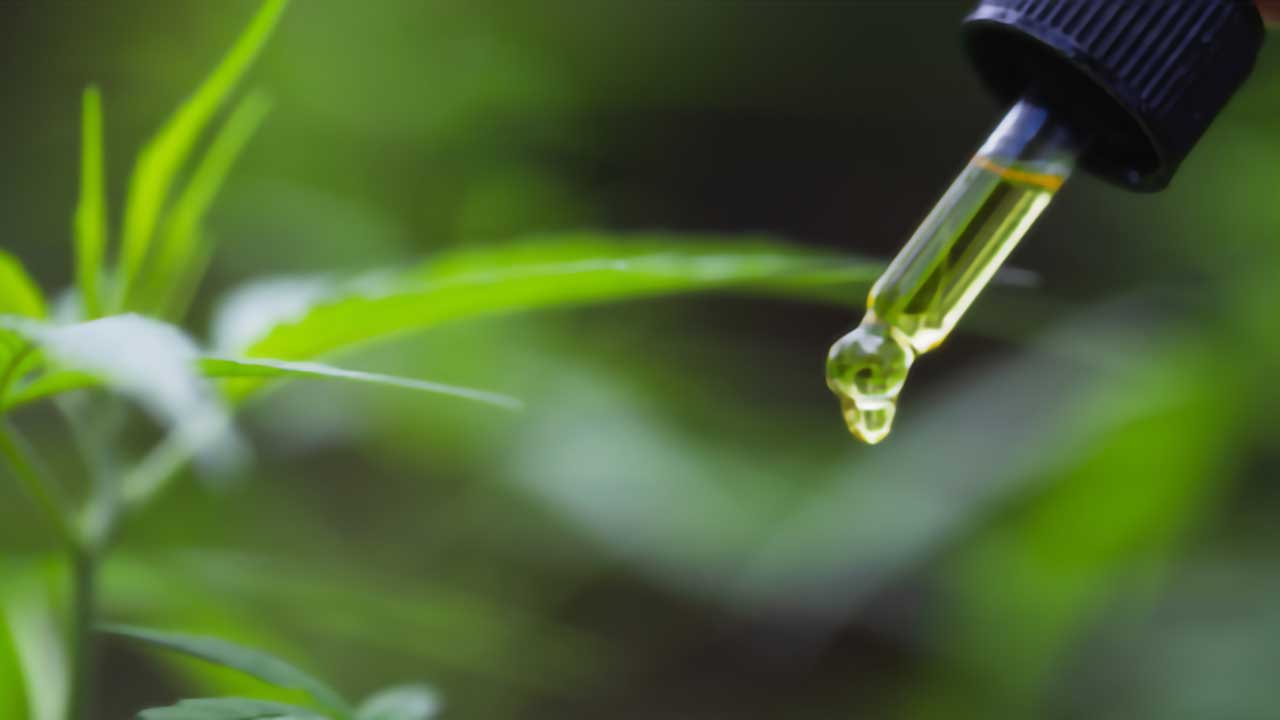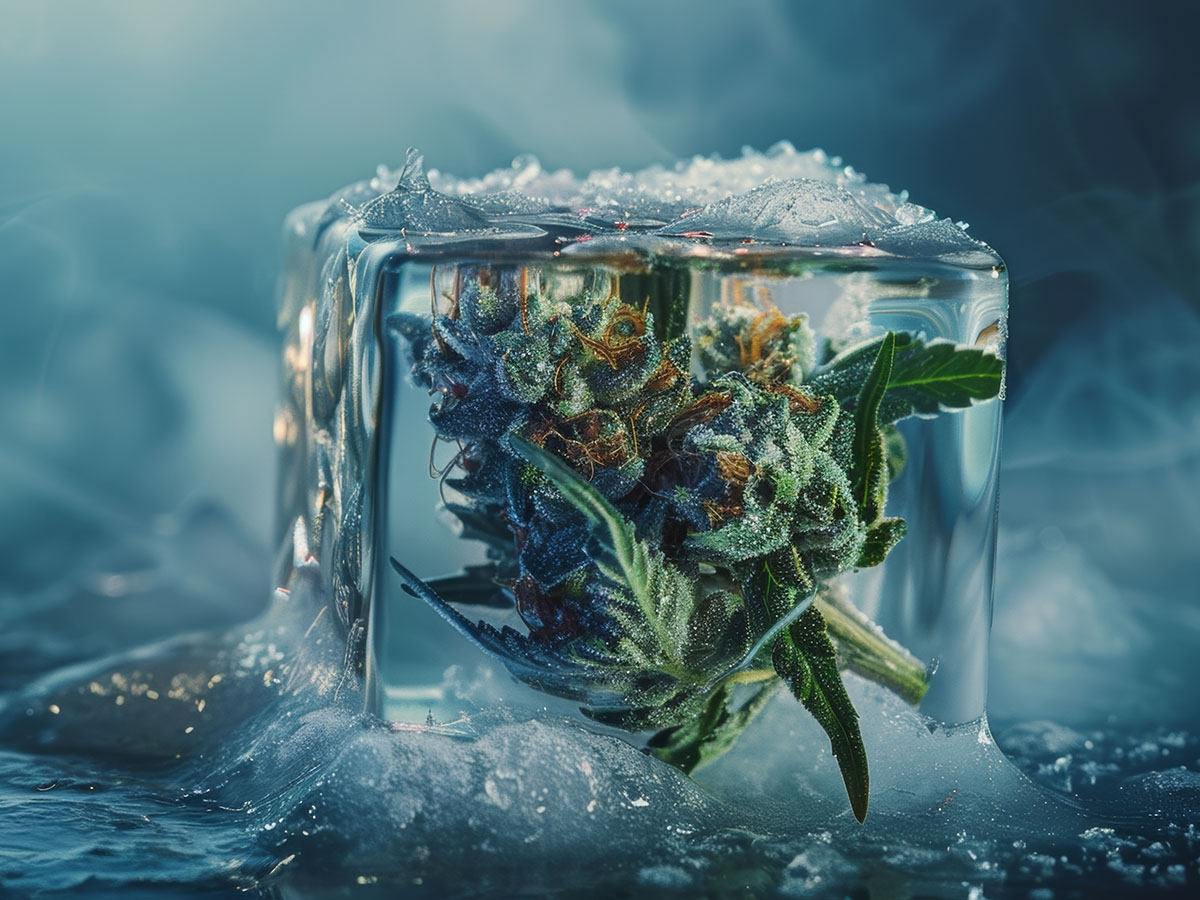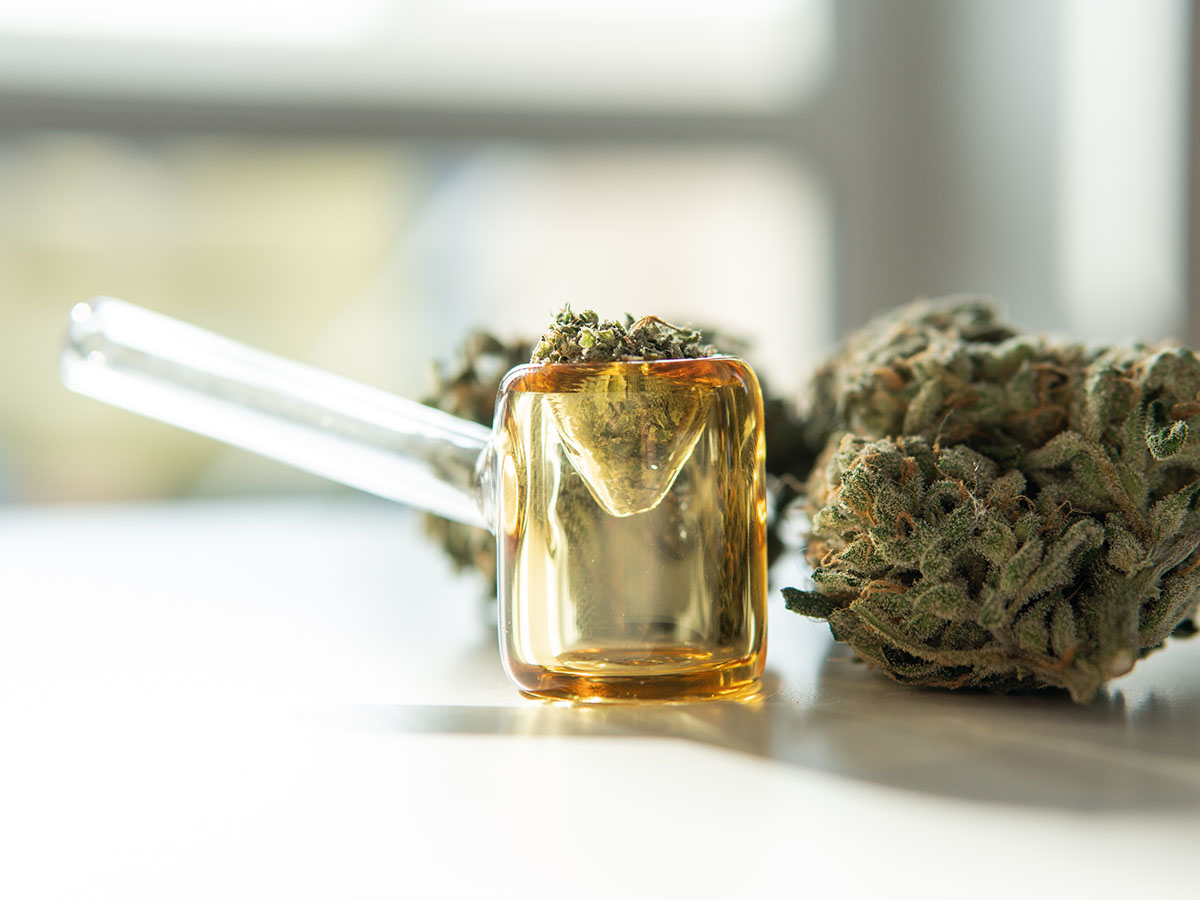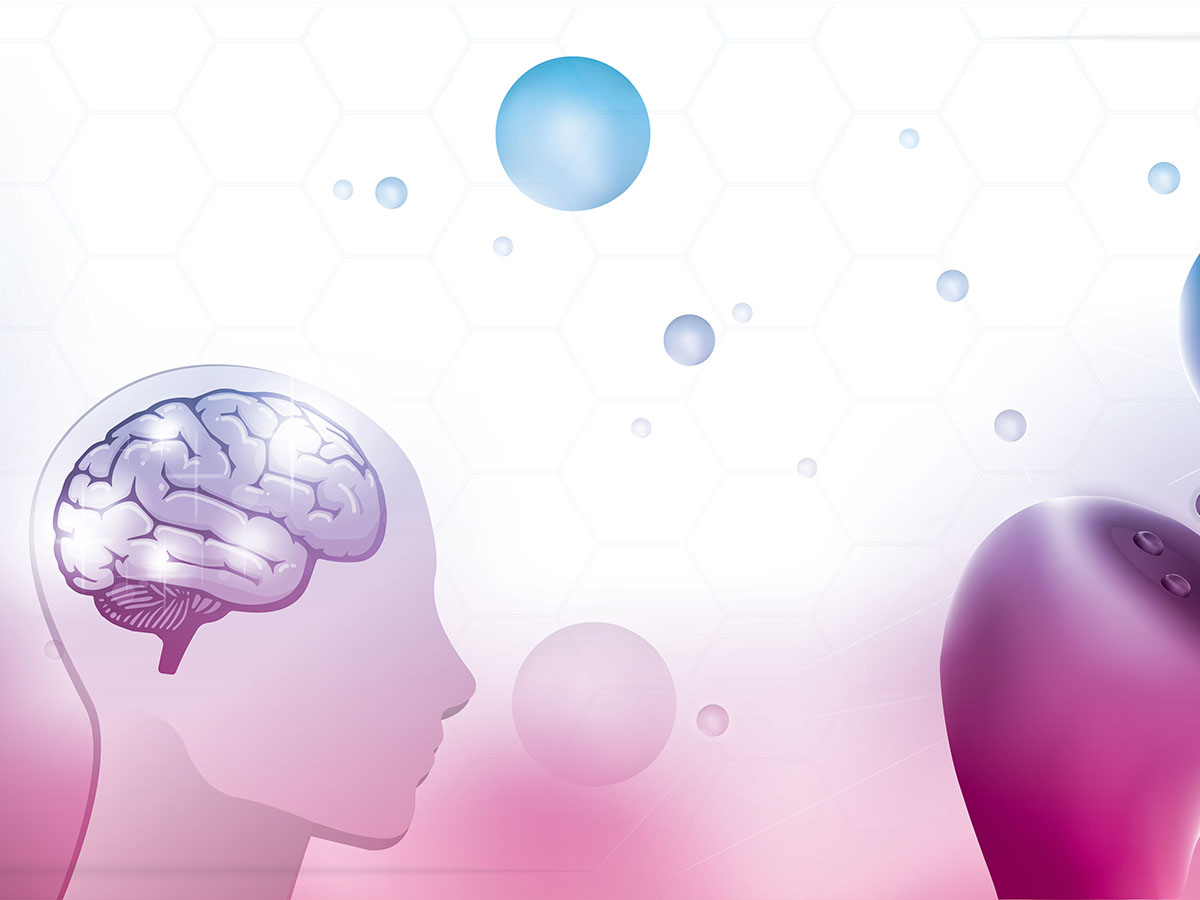
Guide to Cannabidiol (CBD): Understanding What It Is & How It Works
February 16, 2023
It’s hard to walk into any store these days and not see some kind of CBD product. It might be a CBD candle or CBD deodorant, it could be CBD oil or CBD gummies. The industry is growing exponentially, but what is CBD? How does it work? And, more importantly, does it actually work? These are just some of the questions we’re going to answer in this guide.
What is CBD?
CBD, or cannabidiol, is one of the two most popular cannabinoids found in cannabis. While THC causes psychoactive effects, CBD seems to have its own non-intoxicating effects that we’re still trying to understand.1 While THC is typically harvested from marijuana plants, the CBD you find in products on shelves outside of dispensaries is collected from the hemp plant.
In addition to its potential effects when consuming cannabis, CBD is also being looked at for its therapeutic qualities in conditions like anxiety, depression, and even PTSD. In fact, the Department of Veterans Affairs is funding a study into CBD’s potential as a treatment for post-traumatic stress disorder.2 As of now, the only FDA-approved use of CBD is as a treatment for two rare seizure disorders.3 Even knowing that, we still have a lot more research to do before we can truly understand the full effects of CBD.
How Does CBD Work?
To understand how CBD works, you have to understand the endocannabinoid system (or ECS). The ECS is a system that exists throughout your body—from your brain to your skin, organs, muscles and more—that keeps you regulated or in homeostasis. When your body is pushed out of balance, your ECS kicks into action, creating endocannabinoids that activate your receptors (including your CB1 and CB2 receptors) all with a singular purpose of getting you back to your body’s norm. This entire process helps us adjust to different situations and environmental factors.
Cannabinoids, compounds created by the marijuana plant, like CBD also interact with our endocannabinoid system and disrupt our natural endocannabinoid response causing a variety of potential effects. Additionally, CBD, when consumed with THC, has the ability to block certain receptors, causing a dulling of THC’s effects.4 Because your ECS is unique to you, you could have a much different experience compared to someone else.
What is CBD Used For?
Primarily, CBD is used by people who are interested in all-natural remedies for a variety of conditions. If you talk to five different people taking CBD, chances are you’ll get five different reasons for why they use CBD. One person might say they take it for insomnia, and another person might say it helps with aches and pains.5 In the books, the only proven—and FDA-approved—therapeutic use of CBD comes as a treatment for two rare forms of convulsive epilepsy. Beyond that, we have a lot of anecdotal evidence, and some interesting studies, but nothing we can definitively say about the therapeutic value of CBD.
All that is to say, CBD is used for what you want to use it for. You might simply want to have a more balanced THC-to-CBD experience when consuming marijuana, or you might want to see if a CBD lotion can help soothe a particularly stubborn patch of dry skin. How your endocannabinoid system reacts to CBD is unique to you.
What are the Different Types of CBD?
Like any cannabis product, you have a lot of choices when it comes to the types of CBD you can purchase. While you can find everything from gummies to creams and oils, all of the products typically have one of these three labels:
Full-Spectrum CBD: This form of CBD has all the good stuff in it—the cannabinoids, the terpenes, the flavonoids, and more, including CBD. There’s nothing filtered from full-spectrum CBD, but that also means this form of CBD is typically sold in a dispensary because it also contains THC. If you find a full-spectrum CBD outside of a dispensary, it has to adhere to federal law that mandates all CBD products have less than 0.3% THC in them to be legal. Typically, if there is such a low amount of THC in the product, it’s categorized as broad spectrum, not full spectrum.
Broad-Spectrum CBD: Take everything you love about full-spectrum CBD and remove the THC. That’s how you get broad-spectrum CBD. It includes all cannabinoids, terpenes, and flavonoids, but no THC. Now, just because the label says it doesn’t contain THC, doesn’t mean some manufacturers don’t have a little bit of THC in their products. This is because CBD products in the general market aren’t really regulated yet, leading to variances in quality and manufacturing process. That said, even if there is THC in the product, it has to be less than 0.3% THC to be sold outside of a dispensary.
CBD Isolate: If you’re looking for a product that only contains CBD, you are going to want to shop for CBD isolate. The name says it all—CBD is isolated from the other compounds in the plant and infused with an oil, alcohol, or other liquid base. CBD isolate is the most pure CBD you can find on the market today.
Answering FAQs About CBD
Because CBD is flooding the market, we get a lot of questions about it. Here are just some of the most frequently asked questions that our budtenders answer on a day-to-day basis:
Is CBD the same as THC?
No. CBD is a different cannabinoid from THC with its own effects on the endocannabinoid system.
How is CBD used or ingested?
If you can think of it, there’s probably a CBD version of it. You can vape CBD, drink CBD, rub CBD lotion onto your skin, take CBD supplements, and more. There are CBD soaps, CBD edibles, CBD skin care, CBD pre-rolls, and CBD bath salts. You get the point. You can use and consume CBD in pretty much every way possible.6
Does CBD work?
Yes. We just don’t understand exactly how it works or the extent to which it can work. For example, there are a few studies that point toward CBD improving conditions like poor sleep, anxiety, and pain, including fibromyalgia.7 Whether there’s a clinical benefit, however, is unknown until we are able to do a lot more research. Additionally, the CBD products on the market outside of dispensaries are unregulated, with some products testing with less CBD or more THC than labeled.
All in all, CBD does work with the endocannabinoid system, but how it works with yours may be unique to you.
Is CBD legal?
Yes, CBD derived from the hemp plant has been made federally legal. That said, there are some states with laws still in the books that criminalize CBD or certain CBD products, so you should always check with your state’s laws before making a purchase you might regret.8
Purchasing CBD Products
If you buy CBD in a dispensary, the CBD comes directly from the marijuana plant. Because the marijuana industry is strictly regulated, you can trust the quality of the CBD products you purchase. So if you’re looking to experience CBD, view our menu to see the products we have available. This will give you a good idea of what we have in stock at our locations, so you can come down and pick some up for yourself.
Sources:
1. “What are the benefits of CBD — and is it safe to use?” Mayo Clinic, December 6, 2022, https://www.mayoclinic.org/healthy-lifestyle/consumer-health/expert-answers/is-cbd-safe-and-effective/faq-20446700
2. “Cannabidiol as an Adjunctive to Prolonged Exposure for the Treatment of PTSD,” VA Office of Research and Development, October 8, 2024, https://clinicaltrials.gov/study/NCT03518801
3. “CBD for Seizures- Use, Effectiveness, Side Effects, and More,” Neurology Center for Epilepsy and Seizures, February 21, 2024, https://www.neurocenternj.com/blog/cbd-for-seizures-use-effectiveness-side-effects-and-more/
4. “Cannabinoids and Pain: New Insights From Old Molecules,” Frontiers in Pharmacology, November 12, 2018, https://www.frontiersin.org/journals/pharmacology/articles/10.3389/fphar.2018.01259/full
5. “CBD: What You Need to Know Before You Try,” Cedars-Sinai Blog, April 14, 2019, https://www.cedars-sinai.org/blog/cbd-safe.html
6. “12 awesome CBD products that aren’t gummies,” Time Out, January 19, 2021, https://www.timeout.com/usa/shopping/best-cbd-products-that-arent-gummies
7. “CBD products are everywhere. But do they work?” Harvard Health Publishing, August 8, 2024, https://www.health.harvard.edu/staying-healthy/cbd-products-are-everywhere-but-do-they-work
8. “Your Guide To CBD Legalization By State,” Forbes, September 7, 2023, https://www.forbes.com/health/cbd/cbd-legalization-by-state/
Please consume responsibly. This product may cause impairment and may be habit forming. There may be health risks associated with consumption of this product. State laws impact what dispensaries can and can’t sell to recreational customers and medical marijuana patients. Not every type of product, consumption method, dosage form, or potency mentioned on this blog will be permitted in all locations.


